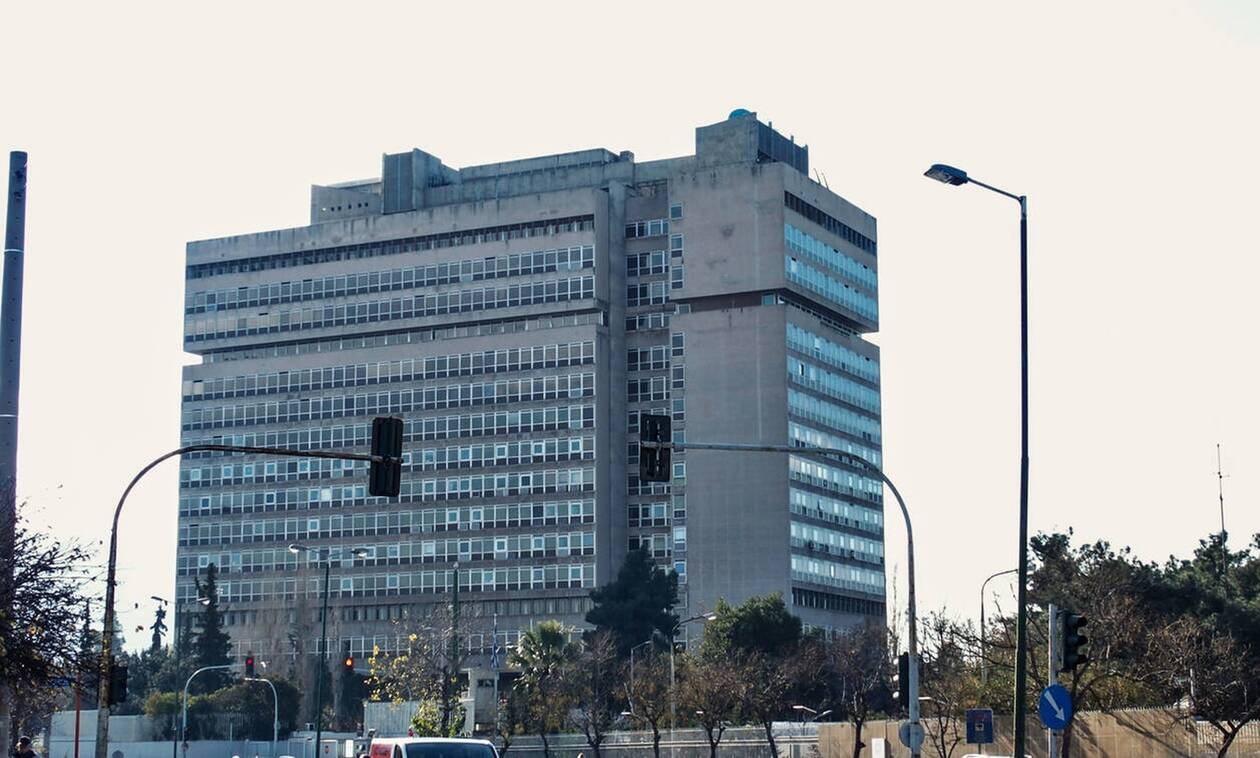
The Government wanting to move on from the wiretapping issue, a case which has raised a political storm, putting the blue camp in a difficult position, making public on Tuesday afternoon the bill for the National Intelligence Agency-EYP and Predator-type malware.
The preparatory work for the draft bill, initially with contacts of the government abroad (mainly in Great Britain) and with efforts to search for practices of other foreign agencies, actually began the day after the televised message of Kyriakos Mitsotakis in early August when he officially took a stance on the case of the wiretapping of PASOK-KINAL party president Nikos Androulakis. The PM announced the fields of “necessary changes”, and talked about strengthening the accountability of the EYP, modifications within the service, shielding the framework of “legal tappings” and upgrading the role of the national security council.
The changes, as they appear in the 46 provisions of the bill which will remain in consultation until November 22, were essentially locked within three days. As of last Friday, as information has it, all the details had been prepared at a “technical” level with the aim of the specific provisions as well as various alternative proposals so the Prime Minister could study it over the weekend before giving his final approval. From the very beginning, Minister of State Giorgos Gerapetritis had overall supervision. However, behind-the-scenes conversations and meetings with other government officials and a constant flow of briefing notes preceded this. The Ministries of Justice and Digital Governance, for example, soJustice Minister Kostas Tsiaras and his colleagues and Digital Governance Minister Kyriakos Pierrakakis together with his own officials, are among those involved, given that a detailed look was needed in more specialized fields, such as that of cyber security.
“Sensitive” points
According to the same sources, there were certain “sensitive” points which caused the most agitations, concerns or even objections. The most indicative is article 4 of the bill in the point that it concerns the right to information of the monitored person. A provision which immediately caused loud objections from both SYRIZA and PASOK, due to the restrictive framework that accompanies it: the “subject” will be able to be informed three years after the end of the monitoring.
However, the restoration of this possibility was not locked in the first place, as the prime minister’s office was reportedly weighing every parameter until the last moment with two different options: either nothing would be foreseen at all, or conditions would be set. And finally it was decided that “after the expiration of three years from the termination of the validity of the prosecutor’s order concerning the lifting of confidentiality for reasons of national security and following the submission of a relevant request (…) the imposition of the restrictive measure on the victim is notified, provided that it is not compromised the purpose for which this was ordered and after a decision of a three-member body”.
The political “filter”
Another point of intense reflection within the PM’s office was the way in which the framework for the legal lifting of secrecy for a political figure would be “shielded”. With a court filter or perhaps something else? Who would be the political figure to sign off? Choices mulled included the Prime Minister, the respective minister who will be in charge of the EYP, or a general secretary. Given that the double prosecutorial “filter” had already been decided, the strengthening of the conditions with a political “safety valve”, according to the government’s terminology, was what finally passed. From there and according to the new provisions, the request for surveillance of a political person will go to the respective speaker of the Parliament and then to the two prosecutors. “If there is no Parliament, the permission is granted by the President of the last Parliament or, if he is not present, the Prime Minister” it states.
In addition, as the government had effectively announced in the last 24 hours, the felony (up to 10 years imprisonment) for the use of “dark” devices is reinstated, while the trafficking and possession of malicious software carry prison terms of one to five years (misdemeanor). Among the most important changes, certainly in the background of the sacking of the former head of the EYP Panagiotis Kontoleon, is the one that now excludes persons from the public or private sector from the position of commander of the service. Candidates will be exclusively persons from the diplomatic corps or retired senior officers.
Latest News

Easter Week in Greece: Holy Friday in Orthodoxy Today
At the Vespers service on Friday evening the image of Christ is removed from the Cross and wrapped in a white cloth

Meloni and Trump Meet in Washington, Vow to Strengthen Western Ties
“I am 100% sure there will be no problems reaching a deal on tariffs with the EU—none whatsoever,” Trump stressed.

ECB Cuts Interest Rates by 25 Basis Points in Expected Move
The ECB’s Governing Council opted to lower the deposit facility rate—the benchmark for signaling monetary policy direction—citing an updated assessment of inflation prospects, the dynamics of underlying inflation, and the strength of monetary policy transmission.

Current Account Deficit Fell by €573.2ml Feb. 2025: BoG
The improvement of Greece’s current account was mainly attributed to a more robust balance of goods and, to a lesser extent, an improved primary income account

Hellenic Food Authority Issues Food Safety Tips for Easter
Food safety tips on how to make sure your lamb has been properly inspected and your eggs stay fresh.

Greek Kiwifruit Exports Smash 200,000-Ton Mark, Setting New Record
According to data by the Association of Greek Fruit, Vegetable and Juice Exporters, Incofruit Hellas, between September 1, 2024, and April 17, 2025, kiwifruit exports increased by 14.2%.

Easter Tourism Boom: Greece Sees 18.3% Surge in Hotel Bookings
Among foreign markets, Israel has emerged as the biggest growth driver, with hotel bookings more than doubling—up 178.5% year-on-year.

Greece to Launch Fast-Track Tender for Offshore Hydrocarbon Exploration
Last week, Papastavrou signed the acceptance of interest for the two Cretan blocks, while similar decisions regarding the two Ionian Sea blocks were signed by his predecessor

American-Hellenic Chamber of Commerce to Open Washington D.C. Branch
AmCham's new office aims aims to deepen U.S.-Greece economic ties and promote investment and innovation between the two countries

Why Greece’s New Maritime Spatial Plan Is a Geopolitical Game-Changer
This landmark development is more than just a bureaucratic step — it's a strategic declaration about how Greece intends to use, protect, and assert control over its seas








![Πλημμύρες: Σημειώθηκαν σε επίπεδα ρεκόρ στην Ευρώπη το 2024 [γράφημα]](https://www.ot.gr/wp-content/uploads/2025/04/FLOOD_HUNGRY-90x90.jpg)




![Airbnb: Πτωτικά κινήθηκε η ζήτηση τον Μάρτιο – Τι δείχνουν τα στοιχεία [γράφημα]](https://www.ot.gr/wp-content/uploads/2024/07/airbnb-gba8e58468_1280-1-90x90.jpg)












![ΙΟΒΕ: Πώς το δημογραφικό υπονομεύει την ανάπτυξη – Τι συμβαίνει στις ελληνικές περιφέρειες [γραφήματα]](https://www.ot.gr/wp-content/uploads/2025/04/dimografiko-600x375.jpg)












![Airbnb: Πτωτικά κινήθηκε η ζήτηση τον Μάρτιο – Τι δείχνουν τα στοιχεία [γράφημα]](https://www.ot.gr/wp-content/uploads/2024/07/airbnb-gba8e58468_1280-1-600x500.jpg)


 Αριθμός Πιστοποίησης
Αριθμός Πιστοποίησης